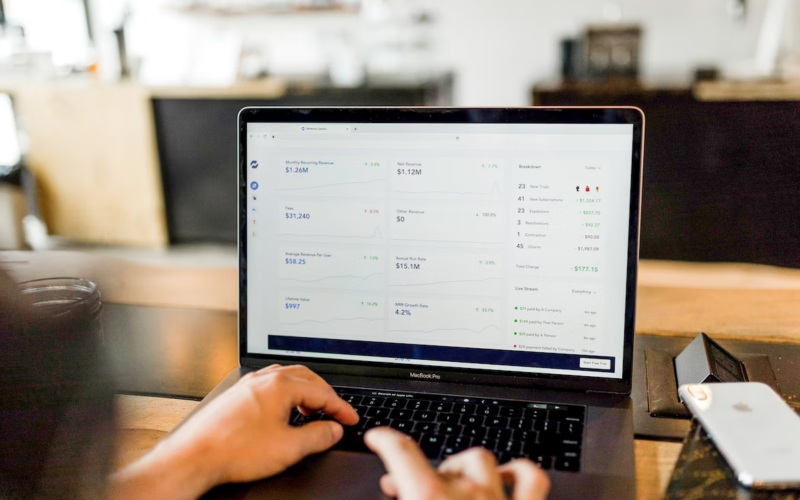In our rapidly evolving financial world, retail banking serves as a pivotal anchor, connecting institutions with everyday consumers. As the go-to avenue for those in pursuit of a streamlined financial journey, it has witnessed profound changes, particularly in this digital era.
The Digital Shift in Retail Banking
Retail banking, once confined to brick-and-mortar branches, has embraced the digital revolution. This shift has brought about several notable changes:
- Digital Onboarding: Gone are the days of lengthy paperwork. Now, customers can open accounts, apply for loans, or access other banking services online within minutes.
- Payment Services: Digital wallets, contactless payments, and online transfers have made transactions smoother and more convenient.
- Push Notifications: Banks can now keep their customers informed in real-time. Be it a transaction alert, a loan approval, or a simple account update, push notifications ensure that customers are always in the loop.
Enhancing the Financial Experience
For fintech enthusiasts and finance professionals, understanding the nuances of retail banking is crucial. It’s not just about transactions; it’s about crafting a holistic financial experience. Here’s how modern retail banking is achieving this:
- Personalized Services: Using data analytics, banks can tailor their services to individual needs, ensuring that each customer feels valued.
- Security Enhancements: With the rise of digital banking, security has become paramount. Biometric verifications, two-factor authentications, and encrypted communications are just a few measures in place.
- Financial Education: Many banks now offer resources, webinars, and tools to help customers make informed financial decisions. This not only builds trust but also empowers individuals to manage their finances better.
The Role of Fintech
Fintech startups and established financial institutions are collaborating more than ever. This partnership aims to:
- Innovate payment services, making them faster and more user-friendly.
- Integrate AI and machine learning to predict customer behavior and offer timely financial advice.
- Develop blockchain solutions to make transactions more transparent and secure.
Challenges and Opportunities
While the digital transformation has brought numerous benefits, it also presents challenges. Cybersecurity threats, regulatory hurdles, and the need for continuous technological upgrades are some issues banks face.
However, with challenges come opportunities. The increasing demand for digital solutions means that banks that can innovate will lead the market.
Sustainability and Retail Banking
As the world becomes more environmentally conscious, retail banking is not left behind. Many institutions are now:
- Green Financing: Offering loans and credits specifically for eco-friendly projects, from solar installations to sustainable agriculture.
- Paperless Banking: Encouraging customers to opt for electronic statements and notifications, reducing the carbon footprint.
- Investing in Sustainable Projects: Allocating a portion of their portfolio to environmentally beneficial ventures, signaling a commitment to a greener future.
The Rise of Neobanks
Neobanks, or digital-only banks, are making waves in the retail banking sector. These institutions:
- Operate solely online or via mobile apps, eliminating the need for physical branches.
- Offer competitive rates and lower fees due to reduced overhead costs.
- Prioritize user experience, with intuitive interfaces and 24/7 customer support.
Financial Inclusivity in Retail Banking
Modern retail banking is playing a pivotal role in promoting financial inclusivity:
- Microloans: Providing small loans to entrepreneurs and individuals who might not qualify for traditional financing.
- Financial Literacy Programs: Offering courses and resources to underserved communities, ensuring everyone has the knowledge to manage their finances.
- Banking for All: Introducing no-minimum-balance accounts and low-fee services, making banking accessible to everyone, regardless of their financial status.
The Integration of Advanced Technologies
Retail banking is harnessing the power of cutting-edge technologies:
- Chatbots and Virtual Assistants: Using AI to answer customer queries round the clock, enhancing customer service.
- Predictive Analytics: Analyzing transaction data to offer personalized financial advice and product recommendations.
- Blockchain: Ensuring transparent and tamper-proof record-keeping, especially for cross-border transactions.
Retail banking, with its rich history and promising future, continues to shape the financial world. As it integrates more digital solutions and collaborates with fintech, it promises an enhanced financial experience for all.
Whether you’re a fintech enthusiast, a finance professional, or an everyday consumer, the evolution of retail banking is something to watch and be excited about.

